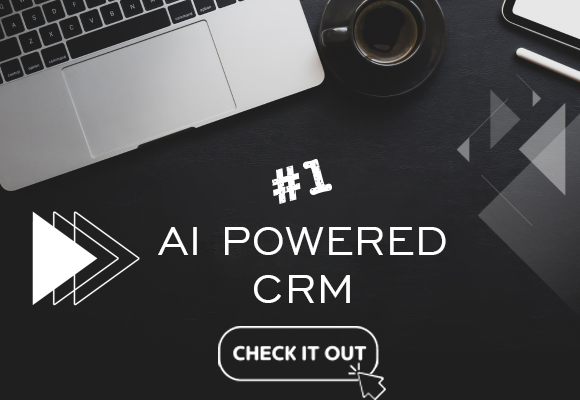The rapid advancement of artificial intelligence necessitates innovative approaches to its governance. As AI systems become more powerful and integrated into society, traditional regulatory frameworks may struggle to keep pace. AI Governance Models Using Blockchain DAOs offer a novel paradigm, leveraging decentralized, transparent, and community-driven mechanisms to potentially steer AI development and deployment ethically and safely, addressing emerging challenges in future AI ethics and AGI safety.
Core Insights on DAO-Based AI Governance
- Decentralized Autonomous Organizations (DAOs) running on blockchain technology present a new frontier for AI governance, promoting transparency and community control over AI systems.
- Key benefits include enhanced auditability of AI decisions, democratic participation of stakeholders in setting ethical guidelines, and automated enforcement of rules through smart contracts.
- This approach could address critical aspects of AI governance, such as managing AI research funding, overseeing data usage, ensuring AGI safety, and guiding future AI ethics.
- Significant challenges remain, including technical complexity, smart contract vulnerabilities, ensuring meaningful participation, encoding nuanced ethical principles into code, and navigating an uncertain regulatory landscape for both AI and decentralized systems.
- Further research and careful experimentation are essential to explore the viability and effectiveness of AI governance models using blockchain DAOs in fostering responsible AI development.
Exploring AI Governance Models Using Blockchain DAOs
AI Governance Models Using Blockchain DAOs represent an innovative and emergent approach to managing the complexities of artificial intelligence. These models propose using Decentralized Autonomous Organizations (DAOs), which operate on secure and transparent blockchain technology, to establish frameworks for overseeing the development, deployment, and ethical alignment of AI systems. The core idea is to shift from centralized control mechanisms to more distributed, community-driven governance structures. This relevance is magnified by the accelerating capabilities of AI and the growing societal demand for accountability, transparency, and ethical considerations in its application, especially concerning AGI safety and the shaping of **future AI ethics**. The exploration of such **decentralized systems** is vital for building trust and ensuring that AI serves humanity’s best interests.
The Imperative for Novel AI Governance Frameworks
The increasing sophistication and pervasive integration of artificial intelligence across diverse sectors underscore an urgent need for robust and adaptive **AI governance**. Traditional governance structures, often characterized by centralization, hierarchical decision-making, and slower response times, may find it challenging to effectively address the rapid evolution of AI technologies and the novel ethical dilemmas they introduce. As AI systems influence more aspects of daily life, from healthcare and finance to transportation and communication, ensuring their development and use align with societal values becomes paramount.
The consideration of **AI Governance Models Using Blockchain DAOs** is particularly pertinent at this juncture. As AI capabilities continue to expand, sometimes at an exponential rate, concerns regarding algorithmic bias, accountability for AI-driven decisions, the potential for misuse, and the long-term societal implications, including those related to **AGI safety**, are becoming more pronounced. There exists a critical window to design and pilot governance frameworks that are inherently more transparent, resilient, participatory, and capable of adapting to unforeseen challenges. The immutable and open nature of **blockchain technology**, combined with the programmable rules of DAOs, offers a potential pathway to achieve these goals.
These innovative governance models are relevant to a broad spectrum of stakeholders. AI researchers and developers could benefit from clearer ethical guidelines and community-driven validation processes. Policymakers and regulatory bodies, tasked with navigating the complexities of AI legislation, might find **decentralized systems** offering new tools for oversight and compliance. Organizations deploying AI solutions require mechanisms to ensure responsible and ethical practices, thereby building public trust. Ethicists and social scientists can contribute to and analyze the formation of **future AI ethics** within these frameworks. Ultimately, the general public, whose lives will be increasingly shaped by AI, has a vested interest in governance models that promote fairness, safety, and equitable benefit distribution.
Understanding the Foundations: AI Governance, Blockchain, and DAOs
To appreciate the potential of DAO-based AI governance, it is essential to understand its core components.
Defining AI Governance
**AI governance** refers to the structures, policies, norms, and processes established to direct and control the development, deployment, and use of artificial intelligence systems. Effective AI governance aims to maximize AI’s benefits while minimizing its risks. It encompasses a wide range of considerations, including ethical principles (fairness, transparency, accountability), legal compliance, safety protocols, data privacy, and stakeholder engagement. The goal is to ensure that AI technologies are developed and utilized responsibly, in alignment with human values and societal good. As AI systems grow in autonomy and impact, the need for proactive and adaptable governance frameworks becomes increasingly critical.
Understanding Blockchain Technology
**Blockchain technology** is a distributed ledger technology (DLT) that allows for the creation of shared, immutable, and transparent records of transactions or data. Information is grouped into “blocks” that are cryptographically linked together in a “chain.” This structure makes it extremely difficult to alter past records, ensuring data integrity. Blockchains are typically decentralized, meaning they are not controlled by a single entity but are maintained by a network of computers. Key features include transparency (all participants can often view the ledger), security (through cryptography and consensus mechanisms), and immutability (once data is recorded, it cannot be easily changed). These characteristics make **blockchain technology** a suitable foundation for systems requiring trust and verifiable processes, such as DAOs.
Decentralized Autonomous Organizations (DAOs) Explained
A Decentralized Autonomous Organization (DAO) is an organization represented by rules encoded as a computer program (smart contracts) that are transparent, controlled by the organization members, and not influenced by a central government. DAOs operate on **blockchain technology**, which provides a secure and transparent environment for their operations. Key characteristics of a **DAO** include:
- Decentralization: Decision-making and control are distributed among token holders or members rather than vested in a single authority.
- Autonomy: DAOs can operate autonomously according to the rules embedded in their smart contracts, executing actions automatically when predefined conditions are met.
- Transparency: All rules, proposals, voting records, and financial transactions are typically recorded on the blockchain, making them publicly auditable.
- Community Governance: Members usually participate in governance by proposing and voting on initiatives, such as changes to the DAO’s rules, allocation of funds, or strategic directions. This often involves holding governance tokens that grant voting rights.
DAOs are being explored for various purposes, from managing decentralized finance (DeFi) protocols to funding public goods and, potentially, governing complex systems like AI.
The Synergy: How DAOs Can Augment AI Governance
The unique characteristics of DAOs, underpinned by **blockchain technology**, offer several potential synergies for enhancing **AI governance** frameworks.
Transparency and Auditability
One of the primary advantages DAOs could bring to **AI governance** is radical transparency. The rules governing the AI system, decisions made about its development or deployment, ethical guidelines, and even certain operational parameters could be encoded in smart contracts and recorded on a blockchain. This creates an immutable and publicly auditable trail. Stakeholders could verify that governance processes are being followed as intended, and trace the history of decisions, fostering greater trust and accountability than traditional, often opaque, governance models. For instance, any changes to an AI’s core ethical parameters, if governed by a DAO, would require a transparent voting process, with the outcome permanently recorded.
Decentralized Decision-Making
DAOs enable **decentralized systems** for decision-making. Instead of a small group of executives or a single entity dictating AI policy, a **DAO** could allow a broader community of stakeholders – including developers, ethicists, users, and domain experts – to participate in crucial governance decisions. This could involve voting on ethical frameworks, safety protocols, data usage policies, or responses to identified biases. Such a distributed approach could lead to more robust, diverse, and widely accepted AI governance outcomes, potentially mitigating the risk of capture by narrow interests and fostering more democratic oversight of powerful technologies.
Stakeholder Participation and Incentivization
DAOs can be designed to incentivize active and constructive participation from their members. Governance tokens can represent voting power and, in some models, provide rewards for contributing to the ecosystem, such as proposing valuable initiatives, participating in audits, or identifying ethical concerns. This mechanism could encourage a wider and more engaged community to contribute to the **future AI ethics** and operational governance of AI systems. It could also provide a framework for fairly distributing the benefits or value generated by an AI, aligning incentives across different stakeholder groups involved in its development and oversight.
Automated Enforcement via Smart Contracts
Smart contracts, the backbone of DAOs, can automate the enforcement of agreed-upon rules and policies. For example, if a DAO votes to allocate funding for AI safety research, a smart contract could automatically release funds when certain milestones are verifiably met. Similarly, if an AI system is found to violate predefined ethical boundaries (e.g., exhibiting excessive bias), smart contracts could trigger predefined responses, such as temporarily halting the system or flagging it for review. This automated enforcement reduces the need for manual intervention and ensures that governance decisions are implemented consistently and reliably, potentially even creating mechanisms for **AGI safety** by embedding “kill-switches” or operational constraints directly into the control layer.
Potential Applications and Use Cases of DAO-based AI Governance
The application of **AI Governance Models Using Blockchain DAOs** spans a wide range of possibilities, aiming to instill greater responsibility and ethical consideration into the AI lifecycle.
Ethical Guideline Development and Adherence
DAOs could serve as platforms for collaboratively developing, updating, and enforcing ethical guidelines for AI systems. Members could propose ethical principles or specific rules, debate them, and vote on their adoption. These adopted guidelines could then be linked to AI operational parameters, with smart contracts potentially monitoring adherence or flagging deviations for community review. This fosters a dynamic and community-driven approach to shaping **future AI ethics**.
AI Development Funding and Oversight
DAOs can manage treasuries and allocate funds for AI research and development projects. Proposals for funding could be submitted to the DAO, and token holders could vote on which projects to support based on criteria such as ethical alignment, potential for social good, or adherence to safety standards. This model could democratize access to AI development resources and direct investment towards more responsible AI initiatives.
Data Governance and Privacy for AI Training
Training robust AI models often requires vast amounts of data, raising significant privacy and usage concerns. A DAO could govern datasets used for AI training, allowing data providers (individuals or organizations) to have a say in how their data is used, who can access it, and under what conditions. Smart contracts could enforce these data usage policies, ensuring transparency and control over sensitive information within **decentralized systems**.
AI Auditing and Incident Response
DAOs could facilitate independent auditing of AI systems. A community of auditors, incentivized by the DAO, could review AI models for bias, security vulnerabilities, or ethical misalignments. In the event of an AI-related incident or failure, the DAO could coordinate a response, including investigations, bug bounties, and decisions on remedial actions, ensuring a transparent and community-overseen process.
Managing AGI Safety and Alignment
Perhaps one of the most critical long-term applications lies in **AGI safety**. As AI approaches human-level or super-human intelligence, ensuring its goals remain aligned with human values is paramount. DAOs could provide a framework for global, decentralized oversight of AGI development, establishing safety protocols, kill-switch mechanisms, or value-loading processes that are agreed upon and enforced by a broad and diverse coalition of stakeholders, rather than a single nation or corporation. This addresses concerns about unilateral control over potentially transformative technology.
Challenges and Considerations in Implementing DAO-Based AI Governance
Despite the promising potential, the path to implementing effective **AI Governance Models Using Blockchain DAOs** is fraught with challenges and requires careful consideration.
Technical Complexity and Scalability
Both AI and **blockchain technology** are complex fields. Integrating them into functional and secure governance models presents significant technical hurdles. Ensuring DAO platforms can scale to handle the potentially vast number of transactions and participants required for governing sophisticated AI systems is a major concern. The current state of blockchain scalability may not be sufficient for real-time, high-frequency AI governance decisions.
Smart Contract Vulnerabilities
Smart contracts, while powerful, are code and can contain bugs or vulnerabilities. If a DAO’s governing smart contracts are flawed, it could lead to exploitation, loss of funds, or a failure of the governance mechanism itself. Rigorous auditing and formal verification of smart contracts are essential but can be costly and time-consuming, and may not catch all potential issues.
Voter Apathy and Governance Attacks
Effective DAO governance relies on active and informed participation from its members. Voter apathy can lead to decisions being made by a small, unrepresentative group. Moreover, DAOs can be susceptible to governance attacks, where malicious actors acquire enough voting power (e.g., by accumulating governance tokens) to manipulate decisions for their own benefit, undermining the decentralized nature of the system.
Defining and Encoding Ethics
One of the most profound challenges is translating complex, often nuanced, and context-dependent human ethics into programmable rules within smart contracts. **Future AI ethics** are still being debated, and achieving consensus on universal ethical principles is difficult. Encoding these principles into immutable code that can effectively guide AI behavior without unintended negative consequences is an extremely complex task that requires interdisciplinary expertise.
Regulatory Uncertainty
The legal and regulatory landscape for both AI and DAOs is still evolving and varies significantly across jurisdictions. DAOs often operate across borders, creating challenges for legal recognition, liability, and enforcement. Uncertainty about how regulators will treat AI systems governed by DAOs could hinder adoption and investment in these models.
The development of robust DAO-based **AI governance** necessitates rigorous investigation. Establishing effective models requires clearly formulated research questions, such as “How can DAOs ensure equitable AI benefit distribution?” or “What mechanisms within a DAO can best prevent an AI from developing harmful biases?” Preliminary research, consulting academic databases like JSTOR or ProQuest for existing literature, is crucial [3]. Gathering diverse sources, analyzing data critically, and synthesizing findings are key steps in addressing specific challenges and ensuring these **decentralized systems** contribute positively to **AGI safety** and ethical AI development [5].
Charting the Course for Future AI Ethics and Decentralized Governance
The exploration of **AI Governance Models Using Blockchain DAOs** marks a significant step towards rethinking how humanity can steer the development of increasingly powerful artificial intelligence. By leveraging the transparency, immutability, and decentralized nature of **blockchain technology**, DAOs offer a compelling alternative to traditional, centralized governance structures. The potential to foster broader stakeholder participation, enhance auditability, and automate the enforcement of ethical guidelines presents a pathway to more responsible AI innovation.
However, the journey is not without substantial obstacles. Technical complexities, the risk of vulnerabilities in smart contracts, challenges in ensuring meaningful democratic participation, the profound difficulty of encoding ethics into code, and navigating an uncertain regulatory environment are all significant hurdles that must be addressed. Successfully implementing such models will require interdisciplinary collaboration, ongoing research, and iterative experimentation.
Ultimately, the pursuit of effective **AI governance**, including novel approaches like DAOs, is crucial for harnessing the immense potential of AI for societal good while mitigating its inherent risks. As AI continues its rapid advance, particularly towards AGI, the need for robust, adaptable, and ethically grounded **decentralized systems** for oversight will only grow. These efforts are fundamental to shaping a future where AI aligns with human values and contributes to a safe and equitable world, defining the landscape of **future AI ethics** for generations to come.
For more latest content on AI and insights into emerging governance frameworks, subscribe to our newsletter.





